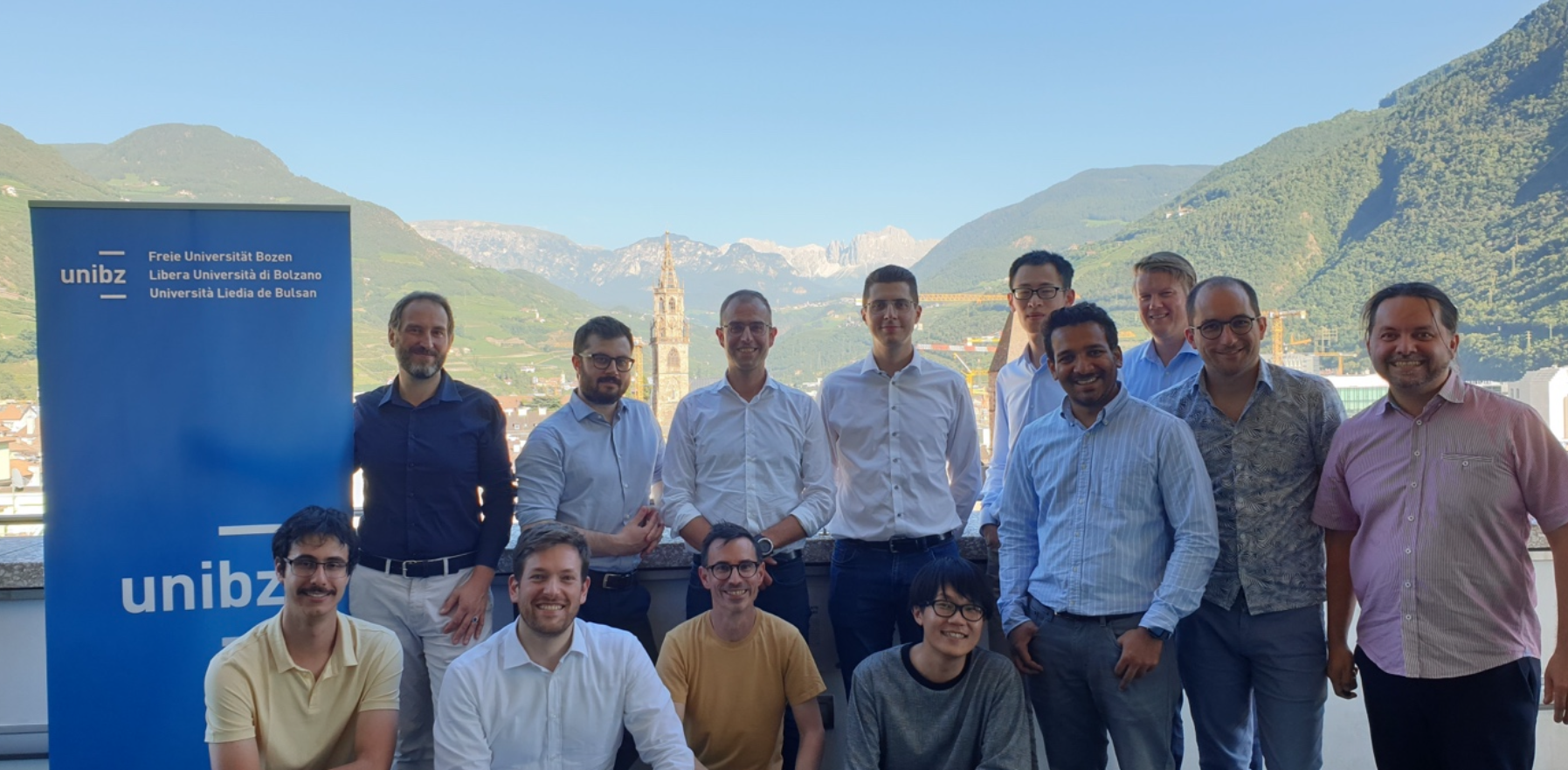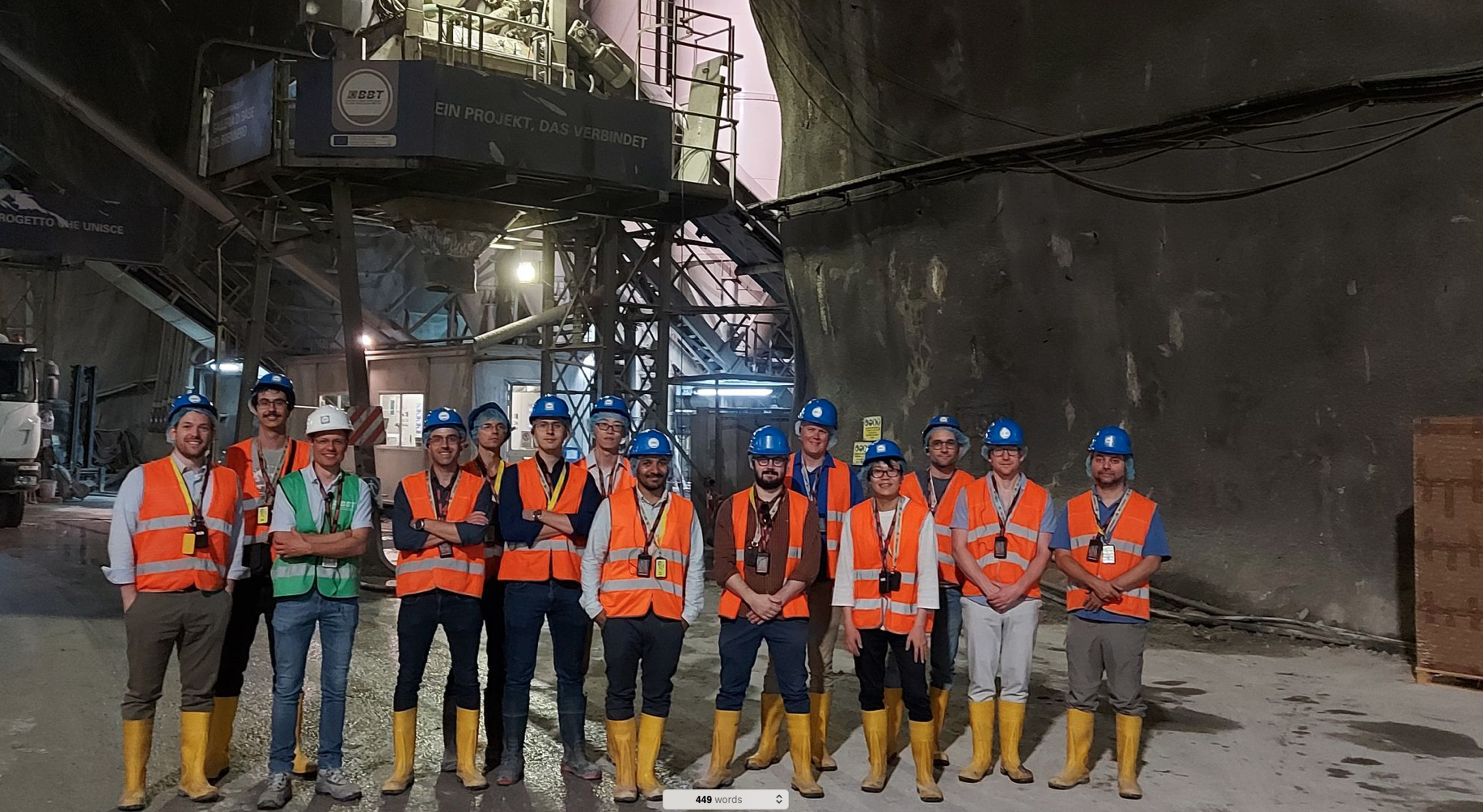Smart Mobile Factories: The Future of Sustainable Infrastructure Development
From September 4-5, 2023, Bolzano, Italy played host to a workshop that brought together a diverse group of interdisciplinary researchers, including civil engineers, architects, computer scientists, and industrial engineers. The primary focus of this gathering was the Smart Mobile Factory for Infrastructure (SMF4Infra) Project, a groundbreaking initiative aimed at revolutionizing i infrastructure construction.
Among the attendees were Ranjith K Soman of IDM, 3MD, CEG; Irfan Čustović, Dr. Jianpeng Cao, and Dr. Daniel Hall from MBE, BK and Dr Pieter Pauwels from TU/e sharing expertise on digital twins for industrialized infrastructure. In addition, specialists from ETH Zürich shared their expertise on dynamic life cycle assessment, while representatives from the Free University of Bozen-Bolzano discussed the intricacies of designing reconfigurable mobile factories.
Infrastructure development often faces challenges such as budget overruns, time delays, and public resistance. To address these challenges, the Smart Mobile Factory (SMF) approach, rooted in the advancements of industrial engineering and smart manufacturing, offers a promising solution. Unlike traditional centralized off-site manufacturing strategies, which often suffer from limited digitalization, the SMF emphasizes local networks of intelligent, mobile factories. These factories can relocate as construction sites progress, a feature that holds significant promise for linear infrastructure projects such as roads, railways, and tunnels.
A key feature of the SMF is its digital representation of physical manufacturing systems. This digital mirroring allows for a bi-directional data flow, facilitating advanced planning, simulation, and on-demand production. The anticipated benefits of this approach are manifold, including cost reductions, expedited delivery times, minimized environmental impact, and enhanced control over the production environment. The discussions in Bolzano were further enriched by an insightful tour of the Smart Mini Factory Lab of UniBZ, providing attendees with a firsthand look at the potential of smart manufacturing.
Additionally, the team had the opportunity to visit the Brenner Base Tunnel construction site, Europe's most ambitious infrastructure project currently underway. Located over 1,000 meters underground, the site aims to establish a 64 km long railway connection between Italy and Austria. This visit underscored the potential of smart, dynamic factories in supplying prefabricated components for large-scale linear constructions, emphasizing the need for innovative approaches like the SMF in the realm of infrastructure development.
As the sector continues to evolve, the integration of smart technology and mobility in factories is set to redefine the landscape of infrastructure development. The event underscored the significance of the SMF4Infra Project in shaping the future of infrastructure development, emphasizing the collaborative efforts required to harness rapid technological advancements for sustainable progress. The Smart Mobile Factory initiative, with its pioneering approach, is poised to lead the way towards a more efficient and sustainable future for the industry.

